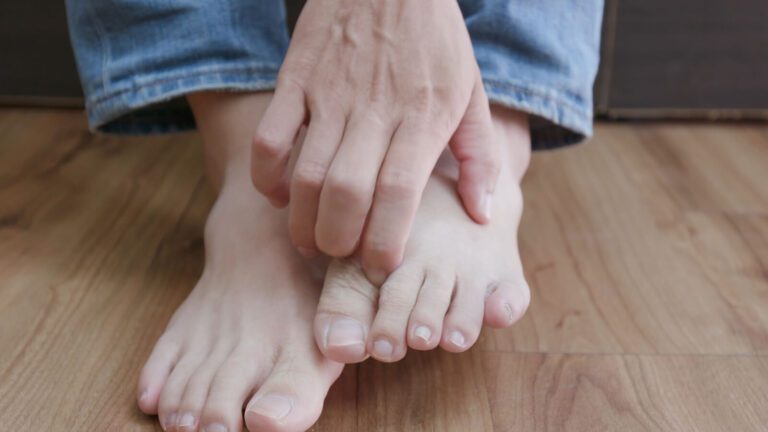MEDIA/
Athlete's Foot

Athlete’s foot, commonly referred to in Hong Kong as “Hong Kong Foot,” is a prevalent skin condition affecting the feet, particularly among men. This may be linked to hot weather and the fact that men tend to sweat more.
Dr. Chan Sheung Hey Thomas, a dermatologist, explains that both men and women can develop athlete’s foot, which is caused by fungal infections on the feet. Men often wear suits and leather shoes that can trap heat and moisture, especially since they tend to sweat a lot, creating an ideal environment for fungal growth.
Lifestyle Factors That Contribute
1. Sharing shoes with others can lead to infection.
2. Trying on shoes without wearing socks may result in infection.
3. Wearing non-breathable socks.
4. Not drying the feet properly after bathing.
Symptoms of Athlete’s Foot
Athlete’s foot usually presents as a fungal infection between the toes, which can cause hair loss in the affected area, blisters, and itching or discomfort. In winter, excessive dryness can worsen cracking, and severe cracks may even lead to bleeding.
Prevention Methods
Dr. Chan suggests keeping the feet dry as much as possible. During the summer, wearing loose and breathable shoes like sandals can help prevent athlete’s foot. For those who sweat excessively, carrying an extra pair of socks to change into can help avoid prolonged moisture on the feet. Additionally, avoid sharing shoes or socks, particularly in public places like gyms or swimming pools, and opt for flip-flops to prevent walking barefoot. If you suspect a foot skin condition, seek medical attention promptly to prevent spreading bacteria.
Care Products and Medications
Wearing breathable, well-ventilated shoes that are not too tight is important. For those with excessively sweaty feet, consider using antiperspirants or talcum powder to keep the feet dry. Creams containing Azole or Allylamine can be applied to the affected areas 1-2 times daily to reduce the likelihood of recurrence.
Self-Infection
Individuals with chronic conditions, such as diabetes, are more susceptible to foot infections. If left untreated, this can increase the risk of skin infections. In severe cases, bacteria can spread to other parts of the body, particularly if wearing pants transfers bacteria from infected feet to the thighs or groin area.
Sunlight Can Kill Bacteria
If you have athlete’s foot, Dr. Chan recommends using personal items only and wearing slippers at home. Additionally, placing shoes in the sun can help kill bacteria due to ultraviolet rays. Disinfecting shoes with alcohol is also advisable. When going out, wear appropriate and breathable shoes; sandals are preferable if possible.


